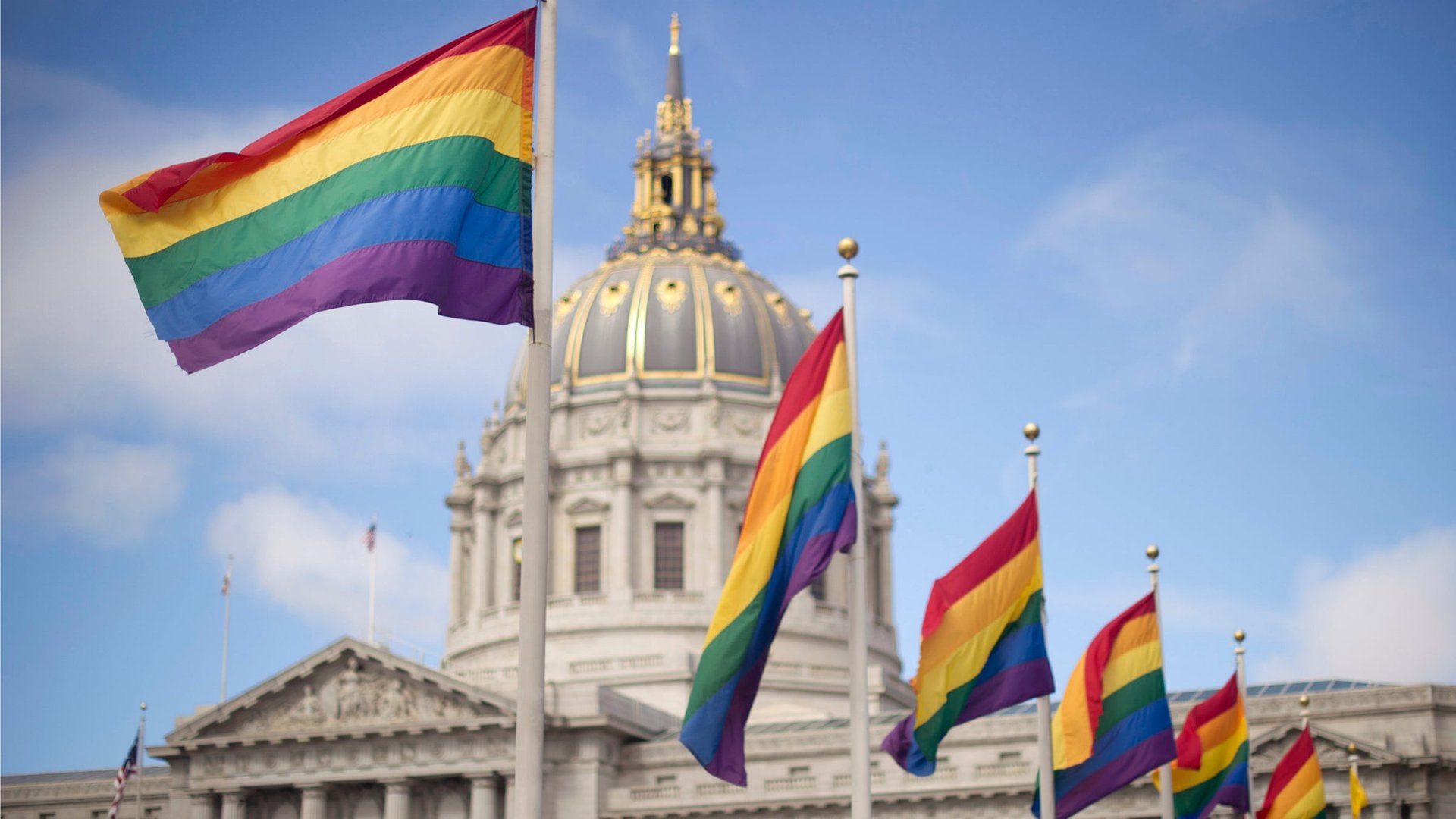The end of DOMA means the beginning of financial equality for same-sex couples
The Defense of Marriage Act is largely good and gone, meaning that same-sex spouses can finally enjoy the same federal rights as heterosexual couples, at least in states that recognize their relationships. If you’re a bit fuzzy on what exactly that means, don’t worry: It’s a lot for anybody to wrap their head around. The federal code includes an estimated 1,138 provisions that award “benefits, rights, and privileges” based on marriage status.


The Defense of Marriage Act is largely good and gone, meaning that same-sex spouses can finally enjoy the same federal rights as heterosexual couples, at least in states that recognize their relationships. If you’re a bit fuzzy on what exactly that means, don’t worry: It’s a lot for anybody to wrap their head around. The federal code includes an estimated 1,138 provisions that award “benefits, rights, and privileges” based on marriage status.
And many of those rights come with a price tag. Think social-security benefits or tax breaks. In total, they can be worth thousands of dollars per year. Below, I’ve pulled out a few examples, just to provide a small, quantified taste of how the federal government has been financially discriminating against married gays and lesbians these last several years.
Joint tax filing: Worth $2,325 per year
You often hear about the “marriage penalty“ in the U.S. tax code. But many couples—usually those where one spouse earns significantly more than the other—end up saving cash by filing jointly, an opportunity that until now has been denied to gays and lesbians. M.V. Lee Badgett of UCLA’s Williams Institute, a think tank that focuses on LGBT issues, estimated what that was costing them in a 2010 law-review article titled “The Economic Value of Marriage for Same-Sex Couples.” She found that in Massachusetts, 66 percent of gay and lesbian couples would have saved an average of $2,325 on their IRS bill if allowed to file jointly. About 11 percent would see no change, and 23 percent would pay an average of $502 more.
Social Security survivor benefits: Worth $5,528 per year
Gays and lesbians pay into Social Security just like the rest of us, but until now, they haven’t enjoyed the same payoff. Most couples don’t make the same salaries over their career, so when a married American retires, the Social Security Administration gives them two options: They can receive their own benefits, based on years of earnings, or receive one half of their spouse’s monthly benefit—whichever is higher. If the breadwinner of a couple dies, the surviving husband or wife is entitled to receive their spouse’s more generous benefits instead of their own.
Again, none of this has applied to gays and lesbians. In 2004, the Urban Institute and Human Rights Campaign calculated that the lack of survivor benefits cost elderly same-sex widows and widowers more than $5,528 a year on average. As the Center for American Progress showed in the chart below, for couples with wider-than-normal differences between their incomes, it could cost much, much more.

Taxes on health benefits: Worth $1,069 per year
The federal government doesn’t tax employee health benefits. Nor does it tax the benefits when workers enroll their families in company plans. But, well, you get the drill. Since gay and lesbian couples weren’t technically married in the government’s eyes, the Williams Institute’s Badgett estimated in 2007 that “the average person receiving benefits for a domestic partner or same-sex spouse [was] taxed $1,069 in additional federal income and payroll taxes.”
Inheritance taxes: Worth a whole lot
And here’s the tax that started the whole DOMA challenge. Edith Windsor, the 83-year-old plaintiff who sued to overturn the law, brought her case after she was forced to pay $363,000 in estate taxes following the death of her partner. Opposite-sex couples, of course, didn’t have to worry about estate taxes at all. When one dies, all of their assets can get handed over to the surviving spouse without Uncle Sam taking a cut. A similar dynamic applied to gift taxes.
So if nothing else, the end of DOMA means Americans won’t have to pay the IRS a bonus because of who they love. About time, don’t you think?
Jordan Weissmann is an associate editor at The Atlantic. He has written for a number of publications, including The Washington Post and The National Law Journal.